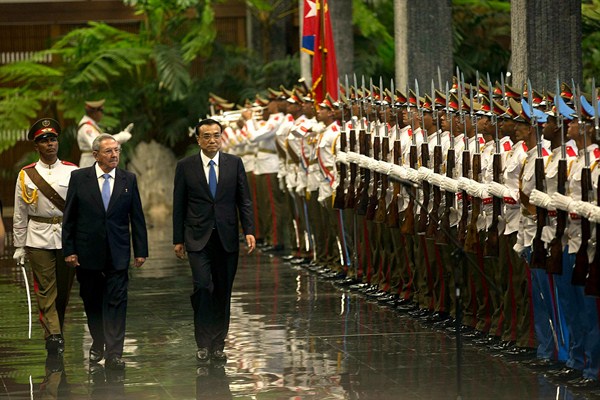Recent visits to Cuba by a bevy of European and Asian leaders highlight a key element of Raul Castro’s foreign policy that he has pursued alongside normalization with the United States: Don’t put all of Cuba’s eggs in one international basket. Cuba learned this lesson the hard way. Pre-revolutionary dependence on the United States, followed by post-revolutionary dependence on the Soviet Union, twice plunged Cuba into economic crisis when those ties were severed. Although less drastic, the current austerity triggered by the decline in oil shipments from Venezuela underscores the danger of relying on a single foreign partner.
Cuba’s leaders hope that better relations with Washington will lead to beneficial commercial ties. But they are still working hard—and successfully—to diversify the island’s international economic relations so Cuba will never again be at the mercy of a single partner, especially not the U.S.
The risk is real. The leading edge of a tsunami of American visitors is already crashing on Cuban shores. The number last year jumped 77 percent from 2014; this year it is on track to be 30 percent more than in 2015. Hundreds of business proposals from U.S. firms are flooding the Cuban bureaucracy.

